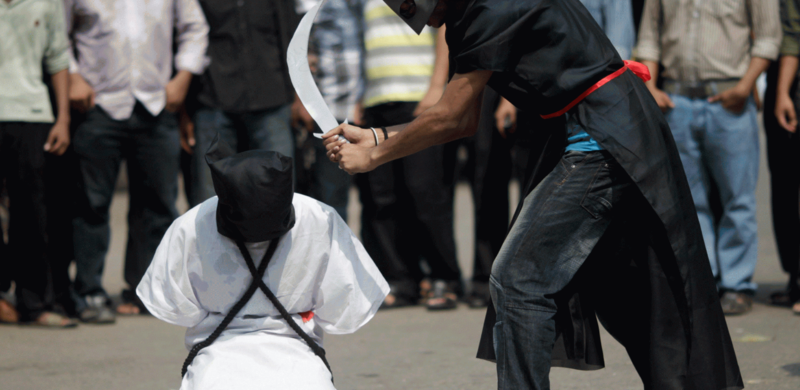
The beheading of a Pakistani citizen in the Kingdom of Saudi Arabia has received condemnation from the Justice Project Pakistan (JPP).
According to reports, a labourer from Chichawatni, Mohammad Imran, had travelled to Saudi Arabia in August 2011 in search of employment. Upon his arrival at the Jeddah airport, Imran was detained. He was implicated in drug-related charges and was sentenced to death. Imran had no access to proper legal representation. Moreover, his trial was conducted in Arabic with no access to a translator.
On Thursday, Mohammad Imran, was executed in the Shumaisi prison of Jeddah.
According to the Justice Project Pakistan, there are about 11,000 Pakistanis in foreign jails, out of which over 7,000 are in the Middle East. Saudi Arabia has 3,400 Pakistani prisoners, out of which 26 have been executed this year.
Meanwhile, Imran’s family has put forth a request before the Saudi government to change this practice and return Imran’s body so that his last rites could be performed.
Earlier, during a visit to Islamabad in February this year, Crown Prince Muhammad Bin Salman had promised the release of more than 2,000 Pakistani prisoners in Saudi jails. In August, the minister for overseas Pakistanis had announced that about 1,350 Pakistani prisoners had been repatriated from Saudi Arabia.
She added that KSA had not returned the prisoners it had promised to repatriate to Pakistan and was also executing them. She urged the Pakistani government to accelerate the release of Pakistani prisoners in Saudi jails.
According to reports, a labourer from Chichawatni, Mohammad Imran, had travelled to Saudi Arabia in August 2011 in search of employment. Upon his arrival at the Jeddah airport, Imran was detained. He was implicated in drug-related charges and was sentenced to death. Imran had no access to proper legal representation. Moreover, his trial was conducted in Arabic with no access to a translator.
On Thursday, Mohammad Imran, was executed in the Shumaisi prison of Jeddah.
As is usually done, families of prisoners on death row are not informed that the prisoner is about to be executed. This prevents families from meeting their loved ones for the last time before execution. Moreover, the dead body of the executed is not returned to their families, adding to their grief.
According to the Justice Project Pakistan, there are about 11,000 Pakistanis in foreign jails, out of which over 7,000 are in the Middle East. Saudi Arabia has 3,400 Pakistani prisoners, out of which 26 have been executed this year.
Meanwhile, Imran’s family has put forth a request before the Saudi government to change this practice and return Imran’s body so that his last rites could be performed.
Earlier, during a visit to Islamabad in February this year, Crown Prince Muhammad Bin Salman had promised the release of more than 2,000 Pakistani prisoners in Saudi jails. In August, the minister for overseas Pakistanis had announced that about 1,350 Pakistani prisoners had been repatriated from Saudi Arabia.
Regarding the execution of Mohammad Imran, Justice Project Pakistan Executive Director Sarah Belal said, “The Kingdom is committing a grave human rights violation by continuing to sentence and behead Pakistani citizens with blatant disregard for due process. Despite being a close ally, KSA executes more Pakistanis than any other nationality.
She added that KSA had not returned the prisoners it had promised to repatriate to Pakistan and was also executing them. She urged the Pakistani government to accelerate the release of Pakistani prisoners in Saudi jails.
